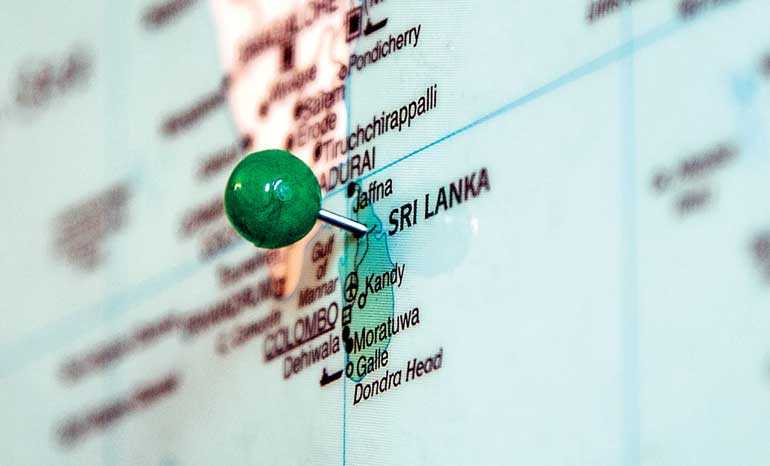Wednesday Feb 25, 2026
Wednesday Feb 25, 2026
Thursday, 6 December 2018 00:52 - - {{hitsCtrl.values.hits}}

Manchester, UK: Sri Lanka needs proper regulation for microinsurance to enable this sector to grow, according to a new report produced by the International Cooperative and Mutual Insurance Federation (ICMIF) and the Institute of Policy Studies of Sri Lanka (IPS).
Entitled ‘Country diagnostic on mutual and cooperative microinsurance in Sri Lanka,’ the report is the outcome of a first-of-its-kind study to investigate the landscape of microinsurance delivered by mutual and cooperative insurers in Sri Lanka, and was conducted as part of the ICMIF 5-5-5 Mutual Microinsurance Strategy.
The report was formally launched on the first day of the ICMIF Asia and Oceania Association (AOA) Seminar held in Hong Kong on 6-7 December.
Microinsurance provides a means of protecting low-income populations against unforeseen events, however, the penetration of microinsurance in Sri Lanka is particularly low at less than 1%. The report’s researchers found a high concentration of a “non-poor” population in Sri Lanka, just beyond the poverty line, signalling the presence of vulnerable groups susceptible to socio-economic shock.
Through a series of focus group discussions (FGD) with low-income communities, the researchers found that the lack of demand for insurance amongst low-income households in Sri Lanka can be attributed partially to an inability to pay the costs involved, and also a lack of trust in insurance providers.
More importantly, the high level of community-based networks at the grass roots level mitigated the need for insurance as a risk management strategy, which indicates that there is future potential for mutual microinsurance in Sri Lanka.
Two forms of mutual microinsurance providers exist in Sri Lanka; formal (registered) insurance providers; and ii) community-based organisations that conduct microinsurance activities informally as a service to their members (such as funeral aid societies, prevalent in rural communities).
The formal insurance industry in Sri Lanka is governed by the Regulation of Insurance Industry Act No 43. Unfortunately, however, the Act does not address or define either microinsurance or mutual microinsurance, although the regulations do not necessarily prevent insurers from carrying out microinsurance. The recent Sri Lankan Microfinance Act of 2016 also indicates that there is a need for microinsurance regulation.
Dr. Ganga Tilakaratna, Research Fellow and Head of Poverty and Social Welfare Policy Unit, IPS, and lead author of the report, explains the report’s recommendations: “In order to promote microinsurance coverage in the country, it is necessary for the regulators to provide an official definition for ‘microinsurance’ and offer special regulatory provisions for microinsurance suppliers. Many insurance providers have also been playing an important role in helping low-income communities to mitigate risks; however, it may be prudent to adopt a mechanism to monitor them without impeding their activities in the interest of their policyholders. Finally, it is necessary to improve knowledge and awareness on insurance, while also building trust between low-income communities and insurance providers.”
In addition to IPS, ICMIF partnered with its four Sri Lankan member companies to conduct this study; Amana Takaful Ltd., Co-operative Insurance Company Ltd., Cooplife Insurance Ltd. and Sanasa Insurance Company Ltd.
Speaking at the AOA Seminar, ICMIF’s CEO Shaun Tarbuck said: “This study was conducted as part of the ICMIF 5-5-5 Mutual Microinsurance Strategy. Launched in June 2016, the 5-5-5 aims to extend the reach of mutual microinsurance to five million previously uninsured, low-income households in five emerging market countries (Colombia, India, Kenya, the Philippines and Sri Lanka) over a period of five years.”
Shaun continued: “The findings of this study will be used to devise an evidenced-based strategy to scale up the mutual microinsurance sector in Sri Lanka, with the objective of providing affordable insurance protection for the first time to many more low-income Sri Lankan communities.”
The intended beneficiaries of the 5-5-5 Mutual Microinsurance Strategy reside in poor communities, and the ultimate objective is to build long-term resilient and insurable populations. The governance of the 5-5-5 is overseen by the ICMIF Foundation, a registered charity in England and Wales formed by ICMIF in 2015. The 5-5-5 also specifically targets at least five of the United Nations Sustainable Development Goals (SDGs).